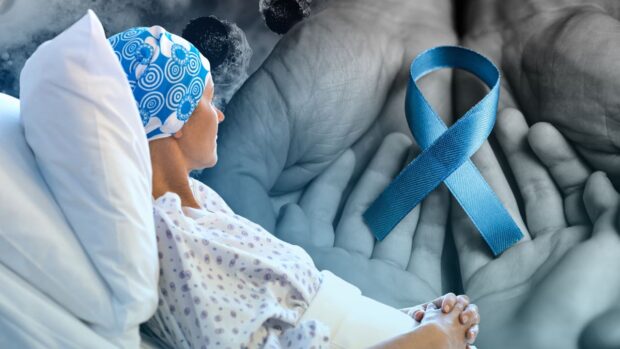MANILA, Philippines — An official of the Philippine Society of Medical Oncology (PSMD) has called for the inclusion of more innovative cancer medicines in the Philippine National Formulary to give indigent patients easier access to them.
PSMD president Dr. Rosario Pitargue on Friday urged the government to prioritize the procurement of immunotherapy, a type of biological therapy that helps one’s immune system to fight cancer, as well as new cancer drugs that specifically inhibit the mutations of BRCA (breast cancer gene).
“These are the drugs that we really need to be able to help our patients,” she told reporters on the sidelines of a cancer care campaign.
“It has been shown that when given after chemotherapy, or in combination with chemo at an early stage, these innovative drugs will prolong what we call disease-free survival,” she said.
While the prescription drug Olaparib, which targets mutations of BRCA1 and BRCA2, was granted regulatory approval in 2021, it is not included in the national formulary. Only listed drugs can be distributed to registered patients.
New technologies for treatment remain unavailable to indigent patients enrolled in the government’s cancer control program, Pitargue said.
The process for the inclusion of these medicines that would need approval from the Health Technology Assessment Council would take one to three years, she added.
While the government has already put in place mechanisms for the National Integrated Cancer Control Act, access to cancer medicines “is still a challenge because not all drugs are included,” the oncologist said.
Limited funding
Without government support, a breast cancer patient, for example, will need some P25,000 per chemotherapy session.
In a separate forum, Jan Llevado, chief of the cancer control and mental health division at the Department of Health (DOH), said that P1.67 billion has been earmarked this year for the cancer and supportive-palliative medicines access program (CSPMAP).
For the cancer assistance fund (CAF), which covers diagnostics, therapeutic procedures, and other treatments and medicines not accommodated by CSPMAP, a total of P500 million has been allotted for this year.
But Llevado said only about 3,000 patients will benefit from this, as the DOH would need at least P2.7 billion in CAF funds to be able to cover all 18,015 registered cancer patients for this year alone.
A patient enrolled in a hospital identified as an access site may get free medicines worth up to P150,000 a year, she said. These can cover one full treatment cycle that may last up to 8 months.
However, only some 20 percent of the reported 153,751 new cancer patients would be given free medicines under the program due to limited funding.
Priority cases
The following cancer types have been identified as priority cases due to their high incidence: breast cancer, childhood cancer, gynecologic cancer, colorectal and other cancers of the digestive tract, adult blood cancer, head and neck cancer, thyroid cancer, lung cancer, prostate cancer, renal cancer and urinary bladder cancer.
Patients afflicted with these cancer types need to submit a valid clinical or medical abstract and a prescription or treatment protocol to avail themselves of government assistance.
The DOH plans to add four more hospitals to the 31 access sites identified for the cancer-related programs: Region II Tropical and Medical Center in Nueva Vizcaya; Amai Pakpak Medical Center in Marawi City, and the Lung Center of the Philippines and the Tondo Medical Center in Metro Manila.
